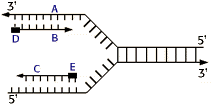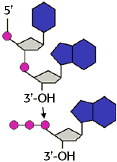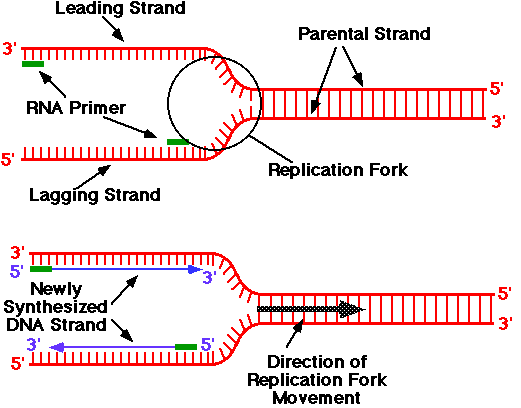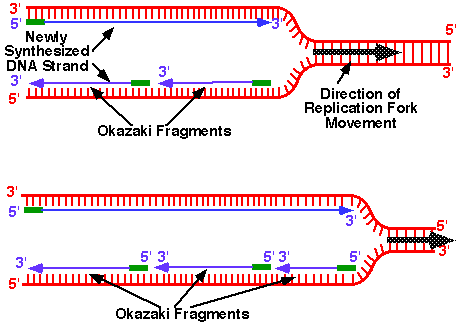Nucleic Acids and the Genetic Material Problem Set
Problem 3 Tutorial: The replication fork

|
In this diagram of the process of DNA replication at a replication fork, the strand labeled B is the: |
DNA Replication
- The two antiparallel strands are replicated simultaneously in both directions.
- RNA primers are used to initiate a new strand.
- The parent strand at the 3' end of the template determines the
daughter or leading strand in continuous replication.
- The parent strand at the 5' end of the template produces the lagging
strand as short pieces of DNA (100-200 nucleotides in eukaryotes and longer
in prokaryotes).
- The lagging strand fragments are called Okazaki fragments after
their discoverer, Reiji Okazaki.
- The RNA primers are removed by DNA polymerase and the fragments are
joined by DNA ligase.
Direction of replication

|
New strands are always synthesized in the 5' to 3' direction. The 5' triphosphate can only be added to a free 3'OH of deoxyribose. |
The replication fork


University of Arizona
Thursday, October 3, 1996
Contact the Development Team
http://www.biology.arizona.edu
All contents copyright © 1996. All rights reserved.






